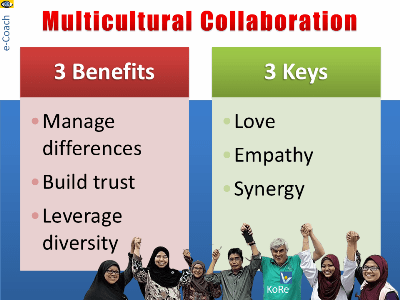 |
|
In today's globalizing world, cultural
intelligence is a necessary tool for every manager who deals with
diverse
teams of employees, customers, partners, competitors, government,
and other business players.
Some aspects of culture are easy to
see, but the most challenging parts of other cultures are hidden.
|
|
|
|
| |
Some aspects of culture are easy to see, the obvious things
like art and music and behavior. However, the significant and most
challenging parts of other cultures are hidden. These might include our
beliefs, values, expectations,
attitudes, and assumptions. Our cultural
perceptions
and programming in these areas shape our thoughts, opinions and actions.
They also make us decide what is ‘normal’ in our eyes and create ‘us’ and
‘them’ mindset. Cross-cultural acceptance and communication problems
are caused by the perceived
deviation by other cultures from our version of normality. |
 |
The bird thinks it is an act of kindness to give
the fish a lift in the air. |
Tagore |
|
|